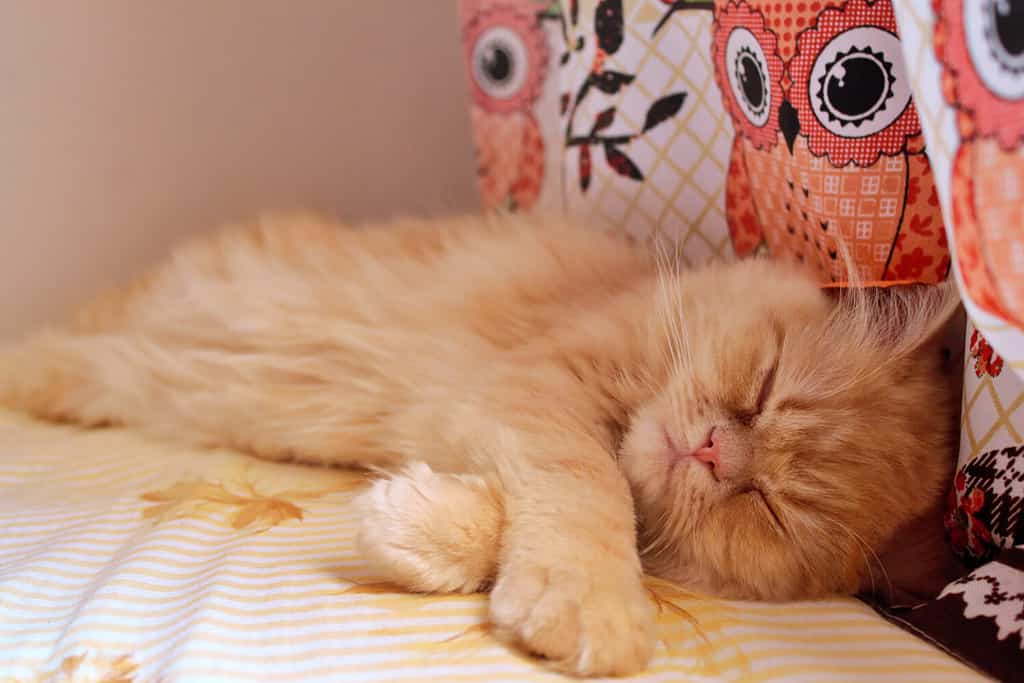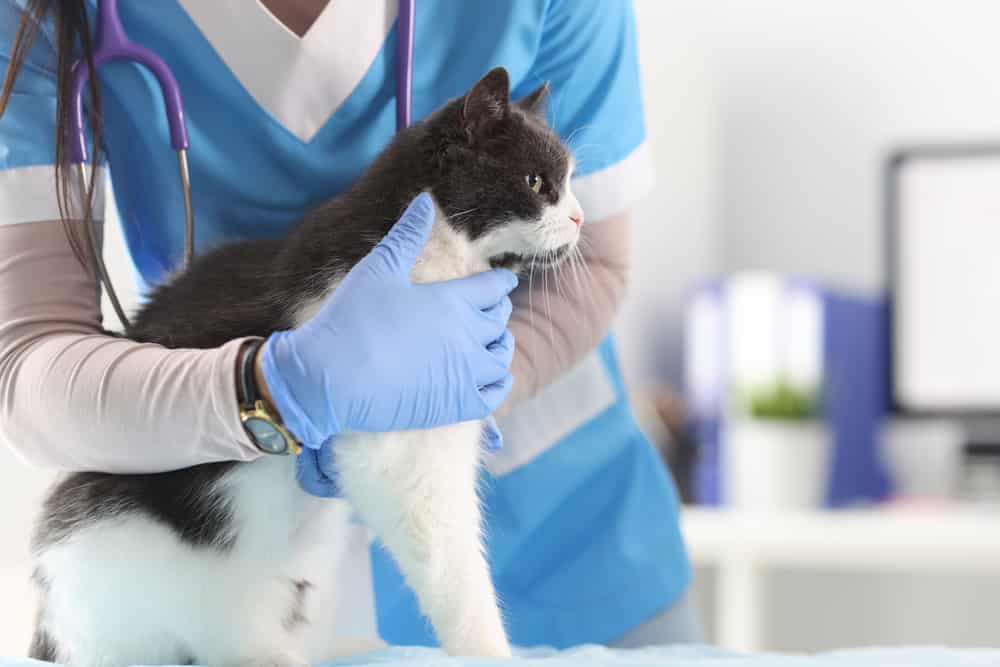At one point, feline pancreatitis was considered rare. However, the condition occurs more frequently than previously thought. Pancreatitis occurs when the pancreas becomes inflamed. Not only do cats experience pain along with other symptoms, but without treatment, the condition could be life-threatening. Learn more about pancreatitis in cats, including causes, symptoms, and treatment!
Pancreatitis Causes in Cats
To understand what causes pancreatitis, you first have to understand the role of a healthy pancreas. This organ produces enzymes that help with digestion and hormone production. When inflammation is present in the pancreas, it’s called pancreatitis. In some but not all cases, inflammation also occurs in the intestine and the liver.
Typically, pancreatic enzymes do a bit of traveling to end up in the duodenum where they finally activate. When a cat has pancreatitis, however, these enzymes don’t travel the way they’re supposed to and instead activate too early (before reaching the duodenum, which is a portion of the small intestine).
This premature digestion results in damage to the pancreas, which is when symptoms start. There’s not always a specific cause for pancreatitis in cats. A kitty may develop pancreatitis without any noticeable trigger, but it could also occur as a result of other conditions, like inflammatory bowel disease for example.
Pancreatitis Symptoms in Cats
Lethargy

When cats have pancreatitis, they experience a range of symptoms, including sluggishness and lethargy.
©Lucas Spengler/Shutterstock.com
A cat with pancreatitis may suddenly become lethargic. They’re experiencing several symptoms, including pain and discomfort. A cat that is usually energetic, may display a more muted state. Much like you when you’re feeling ill, your cat will want to retreat and rest.
Vomiting/Diarrhea
Another set of symptoms that occur with pancreatitis are vomiting and diarrhea. Sometimes cats vomit if they eat too quickly or if they are coughing up a hairball. A change in diet may lead to diarrhea. However, if there is no noticeable trigger for the development of vomiting and diarrhea, it could be pancreatitis.
Abdominal Pain
Unfortunately, your kitty can’t tell you when it’s experiencing pain. However, a watchful owner knows when their kitty is acting out of sorts. Sometimes, that means low energy, sometimes it means hiding, and sometimes it means requesting extra cuddles for comfort.
Decreased Appetite/Nausea
Since cats experience pain with pancreatitis, they are not feeling up for snacking. You may notice a decreased appetite that’s a result of both nausea and pain. As part of the treatment for pancreatitis, your vet may administer an anti-nausea medication like Cerenia.
How Is Pancreatitis Diagnosed in Cats?

Vets may run a couple of tests to diagnose pancreatitis. However, in some cases, a vet may move forward with a diagnosis based solely on clinical signs and medical history.
©H_Ko/Shutterstock.com
Typically, a vet diagnoses pancreatitis after conducting lab testing. These tests can help your vet determine if your cat’s white blood cells are elevated or if their pancreatic enzymes are elevated. Although lab testing is an option, there is a relatively newer test called the Specific Feline Pancreatic Lipase test, also known as the SPEC-FPL test, which can be conducted on-site and provides the veterinarian with either a positive or negative result.
Additionally, an ultrasound may be performed, as it can reveal any inflammation in the pancreas. Although there are tests available, not all cats with pancreatitis will test positive for the condition. In these cases, the diagnosis of pancreatitis may be made based on a cat’s medical history and any noted clinical signs.
Pancreatitis Treatment in Cats
Dr. Colleen Wallace, a cat-only vet at Cozy Cat Veterinary Hospital told A-Z-Animals, “Pancreatitis tends to be a chronic disease in cats, which means that once they have it, they are more likely to have it in the future. There is no treatment that eliminates the disease, but in some cases, pancreatitis has bacterial infection as the cause. When I find that a cat has pancreatitis, I will treat them for two weeks with an antibiotic as well as a pain medication. In about 25% of the cases, this will eliminate the disease, at least for the moment. However, in the majority of cases, the only treatment is to give the cat pain medication when the pancreatic symptoms are noted.”
Prognosis for Cats With Pancreatitis
The prognosis for cats with pancreatitis varies depending on how quickly the condition is diagnosed and treated. In most cases, cats recover. However, they may begin to deal with recurring pancreatitis, which may lead to additional issues. Some of those problems include exocrine pancreatic insufficiency, diabetes mellitus, and lingering symptoms, including fever.
The photo featured at the top of this post is © iStock.com/krblokhin
Thank you for reading! Have some feedback for us? Contact the AZ Animals editorial team.







